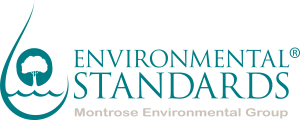An on-site third-party laboratory audit is an important tool for the petroleum sector to monitor and ensure compliance with a benzene waste operations NESHAP (BWON) consent decree and to assess data accuracy and defensibility in addressing corporate environmental liabilities.

The petroleum sector covers the petroleum refining industry which includes the production of petroleum products through distillation and fraction of crude oil, redistillation of unfinished derivations, cracking or other processes. National Emission Standards for Hazardous Air Pollutants (NESHAPs) are stationary source standards for hazardous air pollutants. Hazardous air pollutants (HAPs) are those pollutants that are known or suspected to cause cancer or other serious health effects, such as reproductive effects or birth defects, or adverse environmental effects – such as asbestos, beryllium, mercury, vinyl chloride, benzene, arsenic, and radon/radionuclides, which are regulated under 40 CFR Part 61. Additional background information on NESHAP and the Clean Air Act (CAA) can be found on the US EPA’s website.
A Consent Decree has Been Issued to My Refinery. Now What?
Most consent decrees stipulate that audits be performed prior to initial use of a lab and on a two-year cycle thereafter. Non-compliance with just this section of the consent decree could result in fines as high as $5000 per month. While some may take nominal comfort in national laboratory accreditation, the fact of the matter is that the commercial environmental laboratory marketplace is fiercely competitive and continues to undergo consolidation, resulting in highly variable data quality. Accordingly, many industrial entities have found it prudent to install quality metrics when contracting with commercial environmental laboratories to gauge their environmental liabilities and, in some cases, to actually comply with administrative consent orders. On-site audits by qualified professionals are an excellent tool to assess data quality.
In upcoming blog posts, we will focus on the technical elements, features, and benefits of benzene NESHAP laboratory audits, including facility sample collection techniques, sample bottle types, sample handling, sample custody, and sample shipment – all of which are important when evaluating refinery sampling and analysis procedures.
About the Author
Rock J. Vitale, CEAC, is the Technical Director of Chemistry/Principal and a founding partner of Environmental Standards, Inc. Rock has 30 years of analytical quality assurance experience, performing hundreds of rigorous laboratory audits. When he’s not traveling for business, Rock spends his free time fishing, hunting, and hiking.
